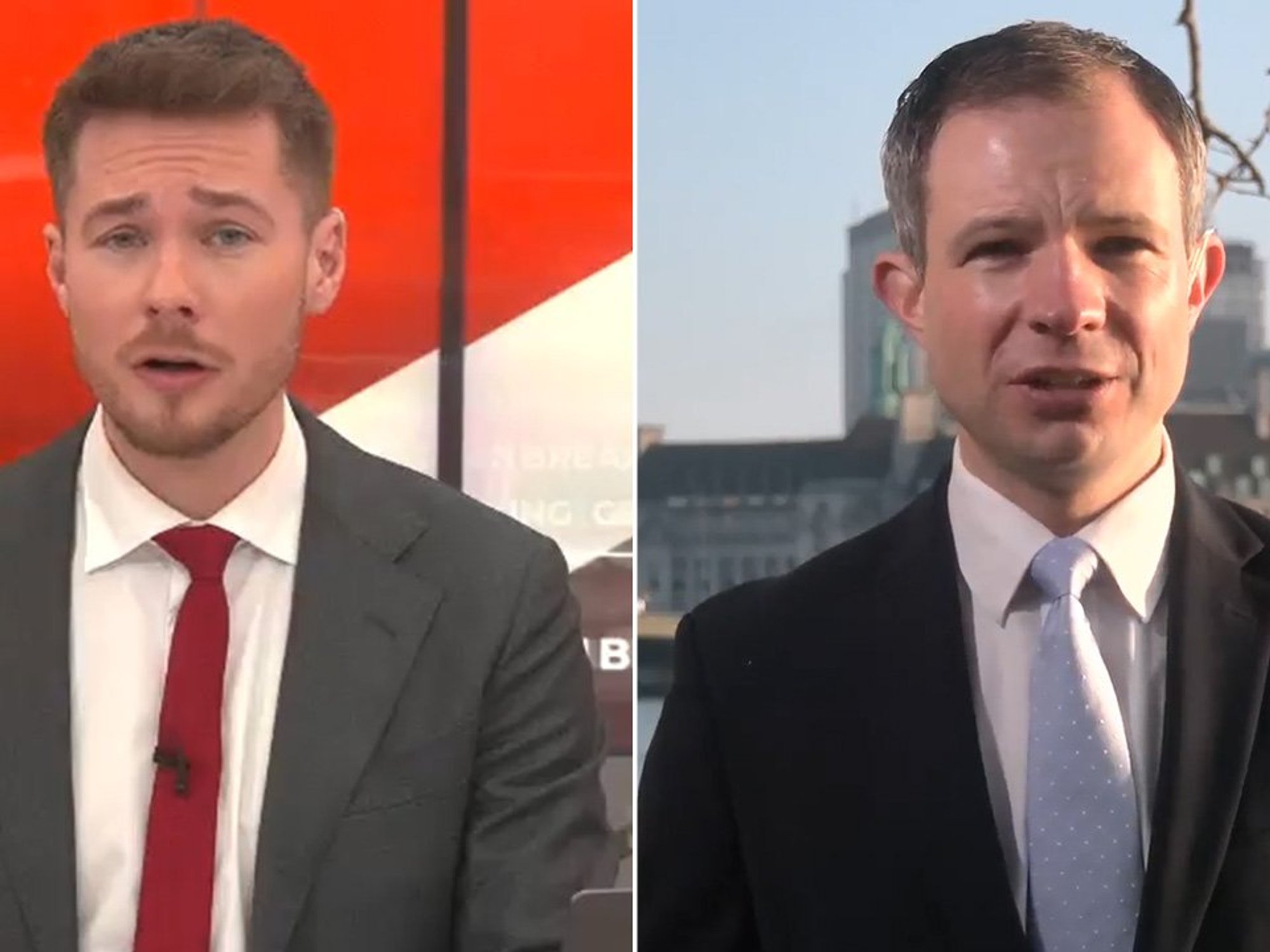Pension tax raid rumours pushing retirees to 'weigh options' ahead of Rachel Reeves's Budget

Susanna Reid challenges Work and Pensions Secretary Pat McFadden about the government's plans. |
GB NEWS

The Chancellor is preparing to unveil her latest set of reforms in her Autumn Budget on November 26
Don't Miss
Most Read
British nationals living across Europe are actively exploring options to transfer their retirement savings away from the UK, as concerns grow about a potential pension tax raid in next month's Autumn Budget from Chancellor Rachel Reeves.
Investment firms are witnessing a surge in enquiries from expatriates worried that the Chancellor might introduce stricter tax measures on retirement funds in order to plug the £30billion fiscal "black hole".
James Green, the investment director at deVere Group, highlighted that British citizens residing in Portugal, Spain, France and the Netherlands are increasingly seeking advice about international pension arrangements.
"Expats are already weighing their options," Mr Green stated. "Even the possibility of new or extended taxes on pensions is enough to set serious savers in motion."

Pension tax raid rumours are resulting in retirees being anxious
|GETTY / PA
The firm, which serves 80,000 expatriate clients, has observed a significant rise in requests for information about cross-border pension structures.
Mr Reeves confronts a challenging fiscal landscape, with public finances showing a £20billion shortfall whilst Government borrowing costs have climbed to their highest point in more than ten years.
Ten-year gilt yields currently stand at approximately 4.72 per cent, adding pressure to find new revenue streams. With the Treasury seeking alternatives to politically sensitive income tax increases, retirement savings have emerged as a potential target for revenue generation.
Although no specific measures have been announced, the combination of fiscal constraints and elevated debt-servicing costs has intensified speculation about pension taxation reforms.
 Borrowing costs continue to grow in another headache for the Chancellor | GETTY / TRADING MARKET
Borrowing costs continue to grow in another headache for the Chancellor | GETTY / TRADING MARKET "Interest payments are tens of billions higher than projected," Mr Green observed, highlighting how this fiscal pressure maintains focus on identifying revenue sources that avoid broader income tax rises.
"Pensions are a perennially tempting option, which is why investors are acting even before any announcement."
The investment firm's data reveals that numerous expatriates are investigating EU IORP (Institutions for Occupational Retirement Provision) frameworks, with Malta emerging as a particularly popular destination for pension transfers.
"The conversation has shifted from curiosity to preparation," Mr Green explained. "People recognise that Malta's EU-recognised framework provides flexibility, strong investor protection and potential tax efficiencies that could prove vital if the UK introduces tougher rules."
Beyond British nationals, the trend extends to Irish and Dutch citizens holding UK pensions who are similarly evaluating international alternatives to safeguard their retirement funds.
These individuals, whether already residing in Europe or planning future relocation, are actively pursuing cross-border solutions that might shield their savings from any forthcoming UK tax changes.
Malta's pension framework presents several advantages that are attracting UK expatriates seeking alternatives. The Mediterranean nation permits tax-efficient lump-sum withdrawals of up to 30 per cent without any lifetime limit, alongside flexible income scheduling determined by individual members.
For non-UK residents, Malta's inheritance provisions frequently fall outside British death duties, offering additional financial benefits. Portugal maintains its own advantageous tax arrangements, whilst Spain and France provide comparable structures that appeal to internationally mobile retirees.
LATEST DEVELOPMENTS:

Pensioner expats have also been impacted by the frozen pensions policy
| GETTY/FROZEN PENSIONS CAMPAIGNThese European jurisdictions offer what Mr Green describes as "clearer and more stable" regulatory environments compared to the UK's uncertain tax landscape.
The combination of Malta's EU-recognised protections and the favourable tax regimes across southern Europe has created compelling alternatives for British pension holders concerned about potential Budget changes.
According to Mr Green, the impact of potential pension tax changes extends well beyond wealthy individuals. He added: Frozen allowances and stealth tax rises have already drawn millions into higher brackets. Even a modest extension of those freezes would hit many middle-class pensioners."
Mr Green cautioned that increased pension taxation could damage market confidence. "It discourages long-term saving and investment, weakening the very economy the government aims to strengthen," he said.
More From GB News










